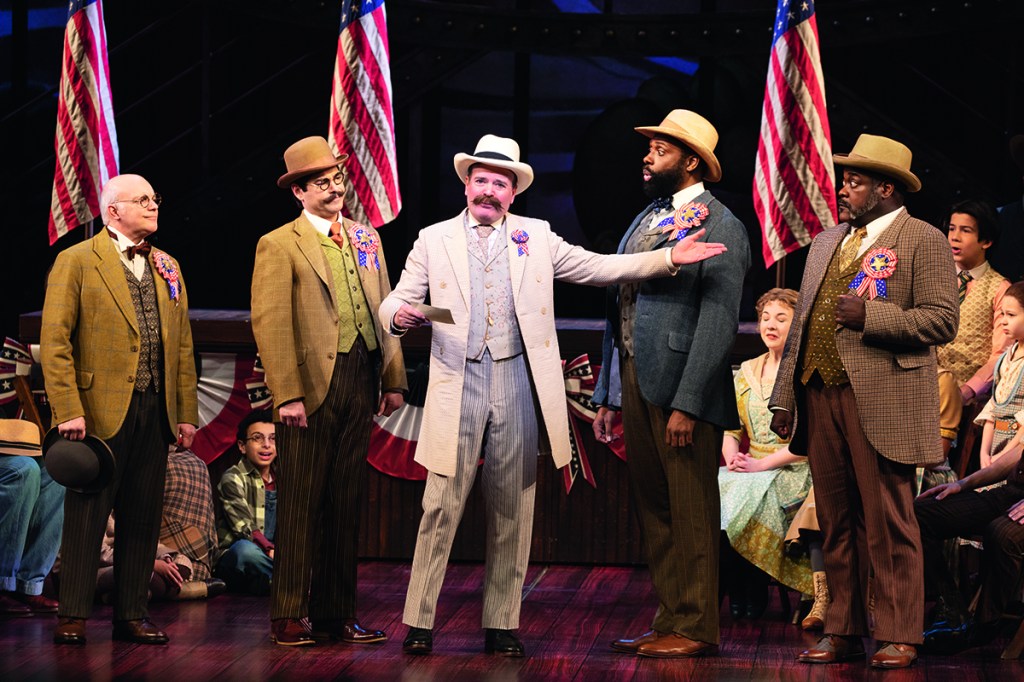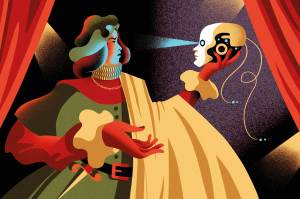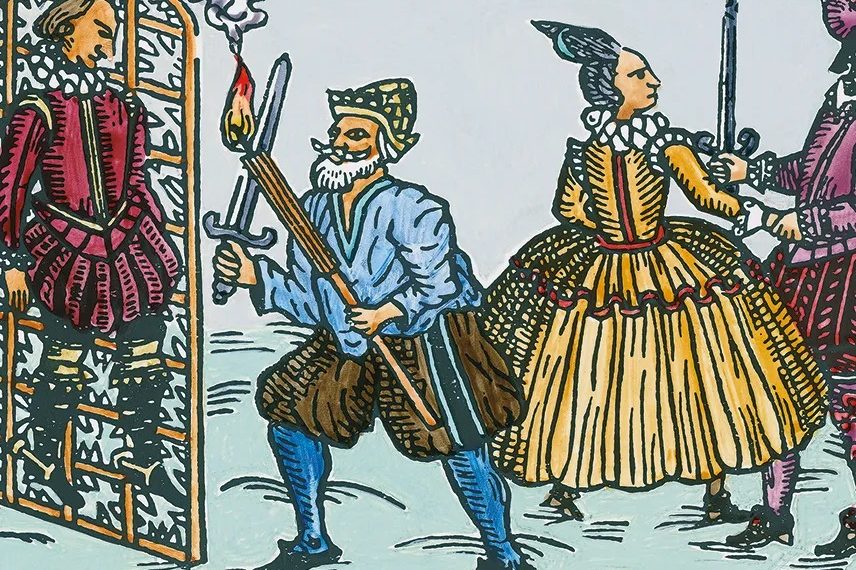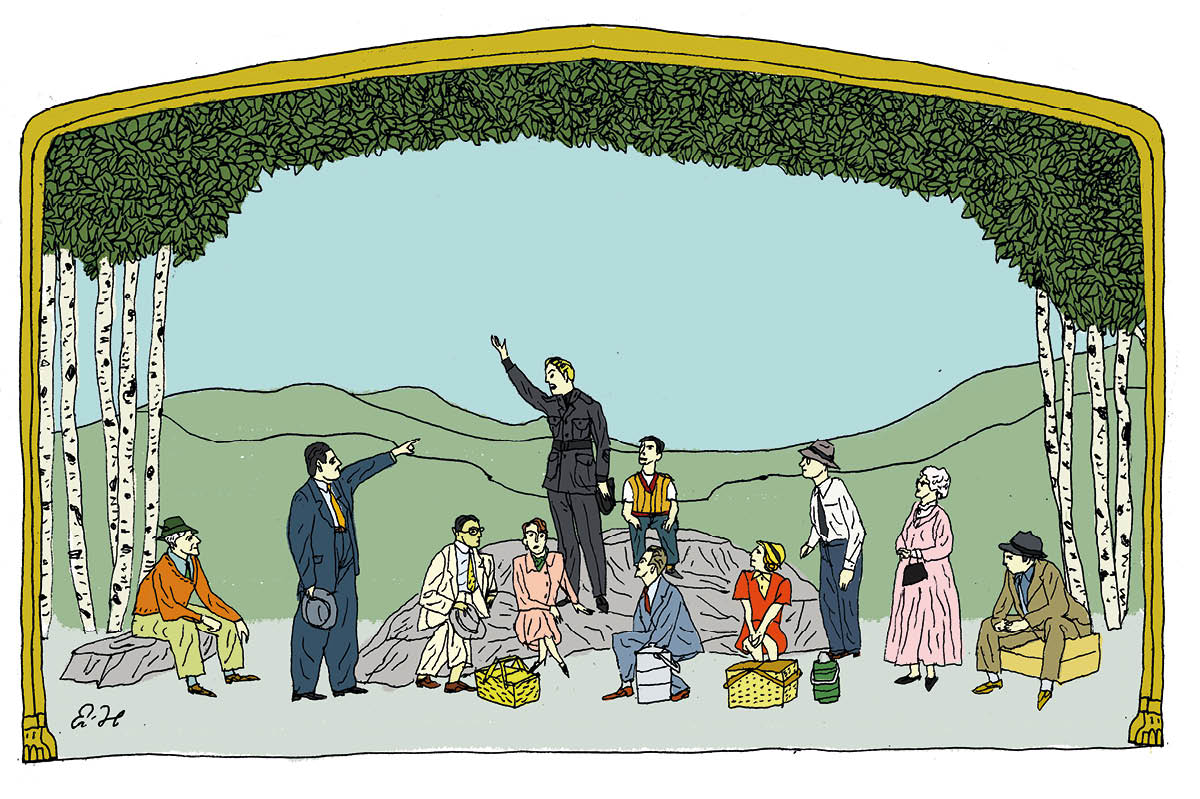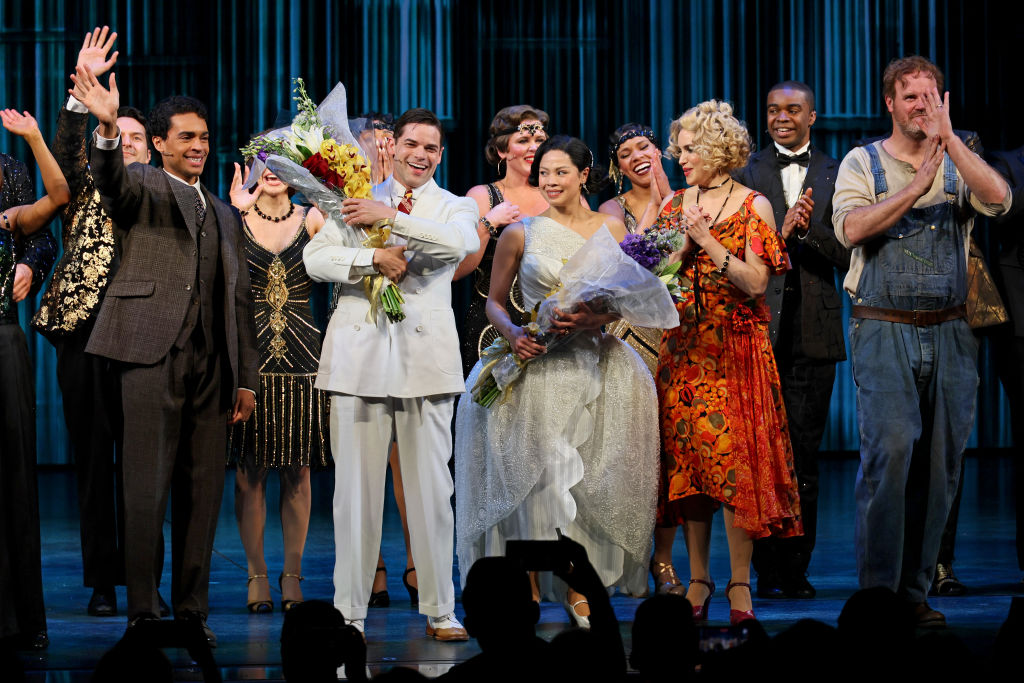On the same Broadway block as MJ: The Musical is the tale of another song-and-dance man hailing from Gary, Indiana: Harold Hill, doctor of music, huckster of band equipment and Meredith Willson’s titular Music Man (1957). Well, that’s not quite the case: Professor Hill is a lying crook, and his Hoosier backstory is a fabricated ruse. He claims to be a graduate of the Gary Conservatory of Music, class of ’05, but the town of Gary was only incorporated in 1906.
Played by Hugh Jackman, this smooth criminal sails into River City, Iowa, promising the Ewarts and Eulalies of the town he’ll make disciplined bandspeople out of their darling Winthrops and Amarylisses. He almost succeeds in emptying their pockets but is sniffed out by Marian Paroo (Sutton Foster), the town librarian, as a phony. She threatens to reveal his secret, ruining his scheme. Then they fall in love, which saves the scheme but jeopardizes his getaway.
That a tone-deaf charlatan should be the subject of a musical is a bold premise. That the conceit succeeds tells you less about Prof. Hill’s “Think System,” in which budding musicians “don’t bother with notes,” than about the creative vision of Willson, an Iowa native, who wrote the book, the music and the lyrics. All three elements are seamlessly integrated. Even though we know Harold is a crook, our eyes and ears don’t let us believe it. Why would a man who can make so merry, not?
Musical themes develop with the action on stage. In the early going, Harold’s numbers are heavy on patter and light on melody, and they have a smooth-talking, improvisatory quality. Jackman’s reedy singing voice and dashing charisma make him a perfect fit for the role. As counterweight, the bookish Marian’s numbers are melodious and jewel-like, appropriate for her more measured persona. Foster is a pro, and she delivers the goods.
Over the course of the show, these distinct musical modes are passed around and bruited about during a slew of winning numbers. By the end, we have Harold singing Marian’s lines and Marian taking on some of his daring and verve. It all concludes with the marching-band performance that Harold promised he’d direct but never thought he’d deliver. The effect is at once comic and moving: the music falters, as we’d expect, but the show goes on. The Music Man is unstoppable, a middlebrow masterpiece.
The revival of Neil Simon’s Plaza Suite (1968), starring Sarah Jessica Parker and Matthew Broderick, bears witness to the titanic playwright’s strengths as well as his limitations. Simon practiced a verbal theater, articulating his characters through dialogue. He didn’t build drama onstage so much as paint it. This play comprises three tableaux. Each section takes place in suite 719 of Fifth Avenue’s Plaza Hotel, and each centers on a different couple, all played by Parker and Broderick.
In the first vignette,“Visitor from Mamaroneck,” a middle-aged couple wises up to their mutual estrangement. This hard truth trickles out slowly, first in petty disputes — over his work, her shoe-wearing habits, their anniversary date, etc. Then, revelations of adultery. Simon’s characters often repeat themselves, broaching by awkwardness what they can’t say with tact. This seems appropriate. Painful, intimate disclosures shouldn’t be too glib. You can’t rehearse a divorce.
What you can do is find a couple hitched twenty-odd years ago and let decades of marriage do the rehearsing. Parker and Broderick have real-life chemistry — the sit-together-silently-for-hours kind — and they play the scene with appropriate detachment, idling forward, never letting the engine get too hot.
Sadly, the later tableaux are played as farce, though they weren’t written that way. (It doesn’t help that Parker’s distinctive, squealing voice resists any attempts at modulation across scenes.) The “Visitor from Hollywood” depicts a tryst between a big-time movie producer and his ex-girlfriend from high school. Popular culture tells us that consummation is a great virtue if she consents, but a mortal, Harvey Weinstein-grade sin if she doubts herself. Nuanced portrayal crumbles under the moral weight.
In “Visitor from Forest Hills,” Mom and Dad try to coax their bride-to-be daughter out of the bathroom where she’s locked herself after a fit of cold feet. It’s a hamfest, but I can’t imagine many today watching and thinking, “Hey, maybe marriage and kids ain’t so bad after all.” That’s what Simon wanted for his audiences back in 1968 — for them to see their own foibles on stage, to feel seen and understood. But nowadays, urging your kids toward marriage is comically taboo. The fears of one generation become the laughingstock of the next.
This article was originally published in The Spectator’s May 2022 World edition.



